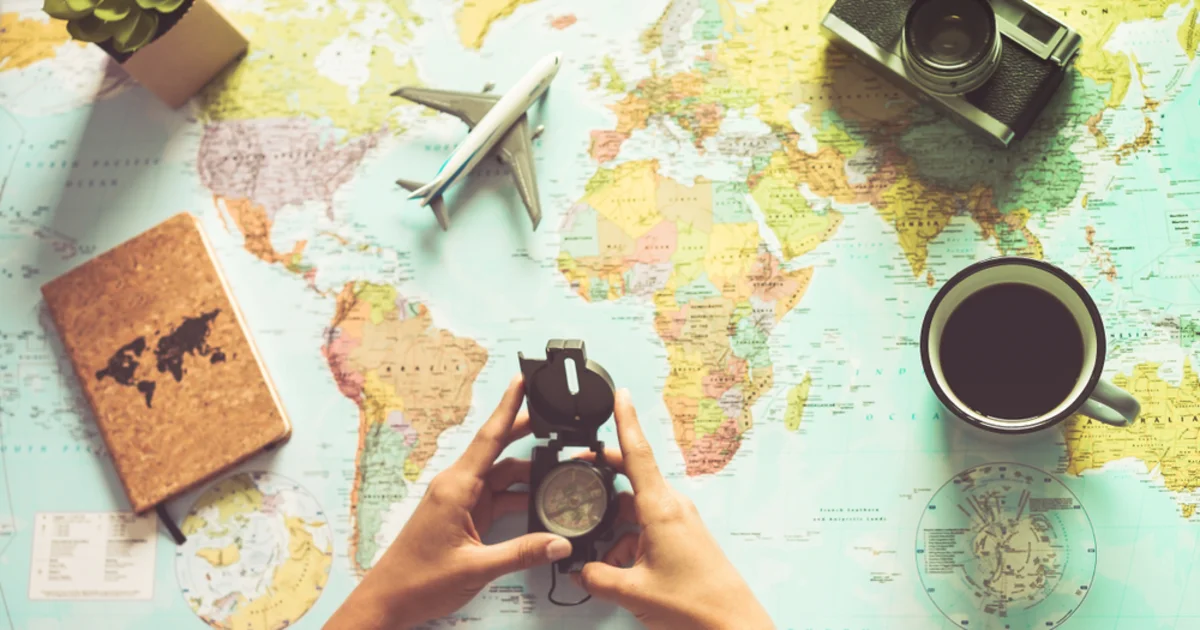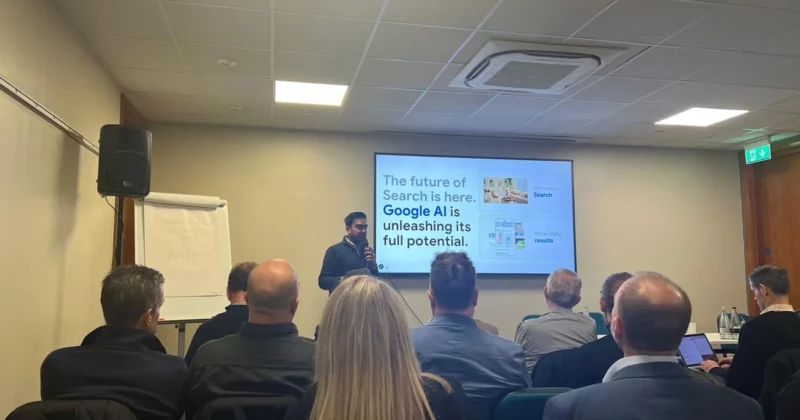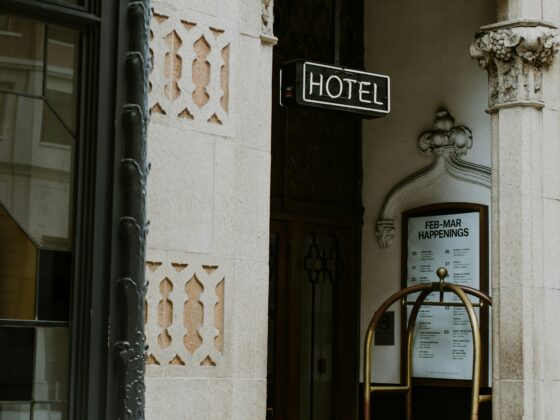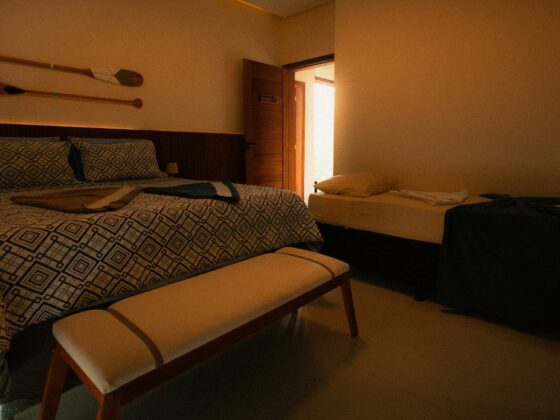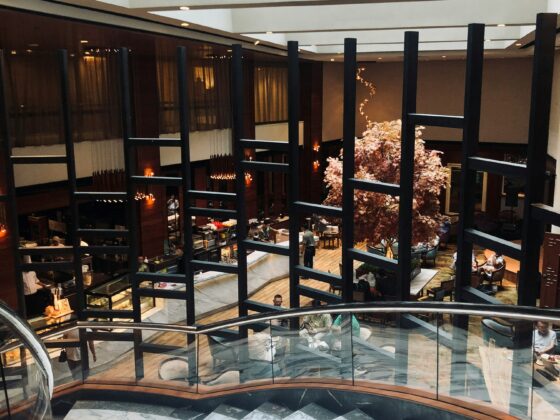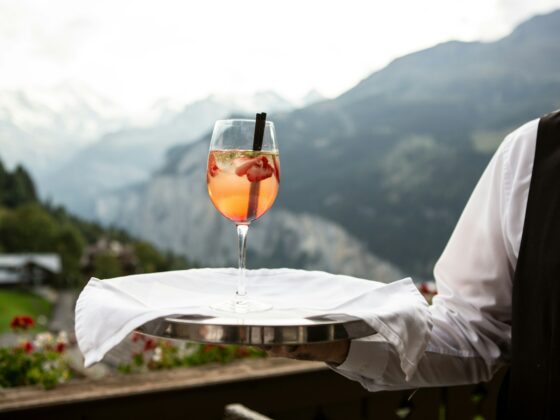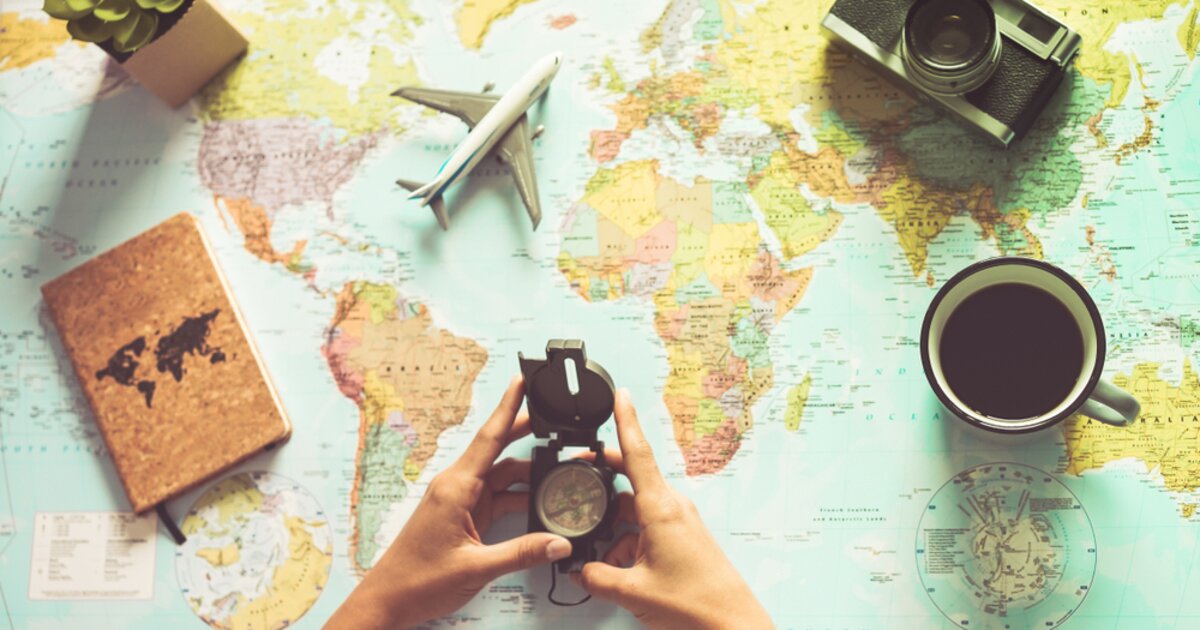
Booking.com has revealed its top 10 predictions for travel in 2026, offering Brits a glimpse of what to expect next year and inspiration for their next trip.
From relationship compatibility tests to mystical detours, Booking.com’s Travel Predictions spotlight how people want to experience the world. In 2026, every trip will become a bold expression of individuality and identity: with travellers eager to let their true selves shine, quirks and all.
James Waters, Chief Business Officer at Booking.com comments:“In 2026, travel is becoming a reflection of who people truly are, with journeys built around interests that perhaps in the past felt too niche or bold to explore.
“Travellers are stress-testing relationships, stepping into fantasy worlds, turning their kitchens into reflections of their journeys, and looking at new ways to experience road trips and holiday rentals with enhanced technology features.”
Destined-ations: Brits looking to the stars for their next trips
From moon phases to astrology, mystical practices will become a new compass to guide travel decisions, turning vacations into journeys that feel spiritually aligned and cosmically approved.
Almost half of travellers (49%) say they’d consider changing or cancelling their plans if a spiritual adviser or guide suggested it was not the right time.
Beyond these cosmic course corrections, many travellers actively seek experiences that align with mystical or astrological cues. Nearly four in 10 (41%) say they consider such influences when planning holidays.
Romantasy Retreats: Inspired by mythical creatures and enchanted worlds
With genres like romantasy exploding in popularity, the relationship between stories and journeys enters a new chapter as travellers step not just into novels, but into the fantasy worlds of dragons, fairies, and other mythical creatures.
Dreaming of enchanted castles and medieval banquets, 68% of British travellers say they’d consider visiting a destination inspired by romantasy. Looking to fully immerse themselves, over half (55%) are open to taking part in a role-play retreat based on their favourite fantasy game, book or film, with nearly a quarter (24%) saying they are very interested in making this part of their future travel plans.
Turbulence Test: Putting love and friendship on trial
Next year, holidays will become the ultimate compatibility check as many travellers plan to use time away to test the strength of their relationships.
More than two-thirds (67%) of British travellers are open to taking a trip with a potential partner, colleague or new friend specifically to see how well they click. A further two-thirds (62%) would consider travelling to a remote location to see how their companion handles ambiguity and discomfort.
As many as 58% are intrigued by role-reversal retreats, where the usual planner hands over control or the introvert takes the lead, and an equal amount would embrace travel with severe constraints, such as budget limits, language barriers, or limited connectivity (58%).
Hushed Hobbies: Pursuing peaceful pastimes and a connection with nature
Silence will be golden in 2026, as travellers look to swap the noise of daily life and distractions of an overstimulating world for the soothing stillness of nature to restore their sense of calm.
With 41% of travellers saying they would go on holiday specifically to feel closer to the natural world and one in five (20%) turning to “quieter” hobbies during a trip, travellers will be seeking restorative rituals that prioritise patience, reflection and stress relief.
From insect spotting and birdwatching to fishing and foraging, travellers are increasingly interested in pastimes that invite a deeper connection and close observation with an outdoor space.
PastPorts: Nostalgia takes charge
With AI-powered photo mapping and heritage-tracing platforms, memories can transform into maps and old snapshots into future trip itineraries as travellers pinpoint the exact spot where a moment once happened and stand in it.
More than two-thirds of British travellers (68%) say they would consider recreating a memory or photo by using technology to identify the exact location it was taken and travelling there.
More than half of these (53%) say their main motivation would be to revisit a memory with family or close friends, while 43% are drawn to destinations that make them feel young, connected or at home.
Glow-cations: Skincare travel to surge
Wellness travel will get a serious glow-up in 2026 with 77% of travellers open to booking a dedicated glow-cation featuring multiple skin-specific treatments tailored to their personal skincare needs.
What used to be simple spa escapes are transforming into high-tech, high-touch journeys centered on the body’s largest organ: the skin. The appetite for personalisation runs deeper than ever, with 62% intrigued by accommodation with smart mirrors analysing pores and hydration to provide real-time skincare advice.
Modern Milestone Missions: Embracing trips that celebrate them
No longer reserved for weddings, honeymoons, anniversaries or having a baby, today’s milestones are deeply personal as societal norms continue to shift and evolve.
Two-thirds (65%) of travellers say they don’t need a reason to book a trip, while one in five (21%) say they’d go to a dream destination without waiting for a ‘traditional”’ milestone to make it worthy.
Three-quarters (75%) justify booking a holiday simply because they’ve worked hard and deserve it, while new reasons to book a trip are rising to the forefront: toasting a new job or promotion (25%), receiving a surprise tax rebate (16%), marking the closure of a breakup (14%), and showing off a new outfit (10%).
Roadtrip Rewired: Journey as important as the destination
In 2026, Brits are looking to embrace spontaneity and discovery, finding new companions along the way. As many as 79% of travellers are open to car-sharing on holiday and more than half (54%) willing to use an app to find travelers on a similar route.
Travellers are drawn to road trips that make travel more spontaneous and flexible (73%), letting them meet new people (72%), and allowing them to share driving responsibilities (72%).
Technology continues to unlock new possibilities on the road, with younger generations leading the way.
Shelf-ie Souvenirs: From kitchen shelves into cultural showcases
In 2026, the humble kitchen cupboard is becoming a cultural canvas, filled with travel souvenirs that reflect personal taste, design flair and a story of place. These shelf-ie souvenirs are moving from fridge magnets to pantry shelves, with travellers increasingly seeking edible and design-led treasures that turn everyday kitchens into showcases of global culture.
More than two-thirds of British travellers (65%) say they would consider buying design-led kitchenware or pantry items on holiday, from hand-painted spice jars to tins of artisan olive oil that double as décor, with more than half (56%) saying they would even consider travelling to a destination specifically known for its ‘pantry’ products or kitchenware.
More than a quarter (25%) say edible souvenirs help them relive a destination each time they cook, while 24% value how these items showcase local craft, sustainability, and traditional methods.
Humanoid Homes: Embracing smart-homes and humanoid helpers
Holiday homes have long been prized for space and privacy, but 2026 will see an evolution into something far more futuristic: homes enhanced by humanoid helpers.
As many as 74% of respondents are open to booking a robotic-enhanced home and 45% of those interested say cleaning bots would sway their booking choice. Meanwhile, 35% are most excited about a robotic chef, and more than a quarter (28%) want robots managing sustainability of the home behind the scenes.
